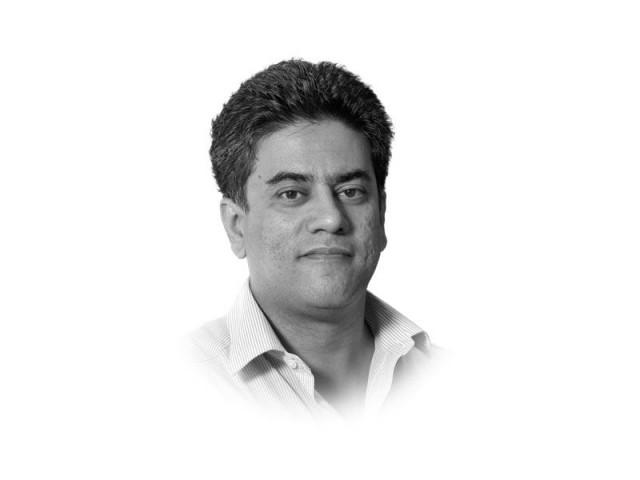The last week
Now it is up to the Supreme Court to decide what needs to be done next

The writer is the former editor of The Express Tribune. He tweets as @tribunian
This time, as in one past instance, the charges would be corruption. But instead of the infamous article 58-2-B or the principle of necessity, this time round it would be through following a comprehensive trial of corruption under which it has been alleged that Sharif and his family lived beyond their means and had no way to account for this anomaly. The trail has been investigated and independent investigators have come up with their findings. Now it is up to the Supreme Court to decide what needs to be done next.
From the body language of the prime minister and his top officials, it seems they have decided not to contest what comes their way. There will be no political turmoil in any eventuality, which itself is a good sign.
If we look at the whole scenario, it’s a positive step for Pakistan where for the first time a comprehensive effort has been made to document corruption and fraud and use the same to press charges against an elected official. In the past we have seen elected government being dismissed on the basis of unsubstantiated newspaper reports and other such questionable evidence. In the past also, what we have seen is that when an elected government was dismissed on such charges, there was no follow-up. The money alleged to have been looted was never returned and in some instances the same who were removed came back to rule again - thanks to legislation like the National Reconciliation Ordinance, a controversial ordinance issued by former President General Pervez Musharraf in 2007. It granted amnesty to politicians, political workers and bureaucrats who were accused of corruption, embezzlement, money laundering, murder, and terrorism between 1 January 1986, and 12 October 1999.
Our history of dealing with corrupt politicians as well as other government officials has been patchy. Who can forget the manner in which the Musharraf-created National Accountability Bureau lost steam within months of its inception? Many corrupt officials who had made billions in kickbacks were let off on the payment of much less as part of questionable settlements.
Coming back to the present scenario, the homework has been done. But what is the larger lesson of all this? How does this fare for democracy? This is the larger question that remains unanswered. While we should do everything in our power to punish corrupt officials, this should not be done at the cost of democracy. What we are seeing is that unrepresentative or partially popular politicians seem to have led the charge for the change of government. It is only recently that heavyweights like the Peoples Party entered the fray and that too not in the interest of democracy but for more petty reasons like turf wars between two parties.
It is the intention that counts. Are we removing Nawaz Sharif to bring in a weaker politician? If one recalls the manner in which the last government – headed by Yousaf Raza Gilani – saw its prime minister change at the fag end, it seems no lessons were learnt there. In this case as well, if Sharif steps down, another PML-N leader will guide the ship till the 2018 elections. After all, despite everything, this party still has the mandate in the national assembly.
If there is any similarity between the past elected government and the present one, it has been the consistent pressure on both. Whether it was Memogate or Panamagate, the challenges had been unrelenting. Of course the problem in this has been politicians themselves. In most instances, they are responsible for much of the flak they received. One has to only look at the lifestyles followed by Asif Zardari and Nawaz Sharif to try and understand that there is much that needs to change for democracy in Pakistan to move ahead.
The next few days would be interesting times for us all. At the same time, maybe it would provide a chance for us to ponder on how long will we continue to elect governments that remain weak despite such large mandates. That is the bigger issue.
Published in The Express Tribune, July 17th, 2017.
Like Opinion & Editorial on Facebook, follow @ETOpEd on Twitter to receive all updates on all our daily pieces.














COMMENTS
Comments are moderated and generally will be posted if they are on-topic and not abusive.
For more information, please see our Comments FAQ